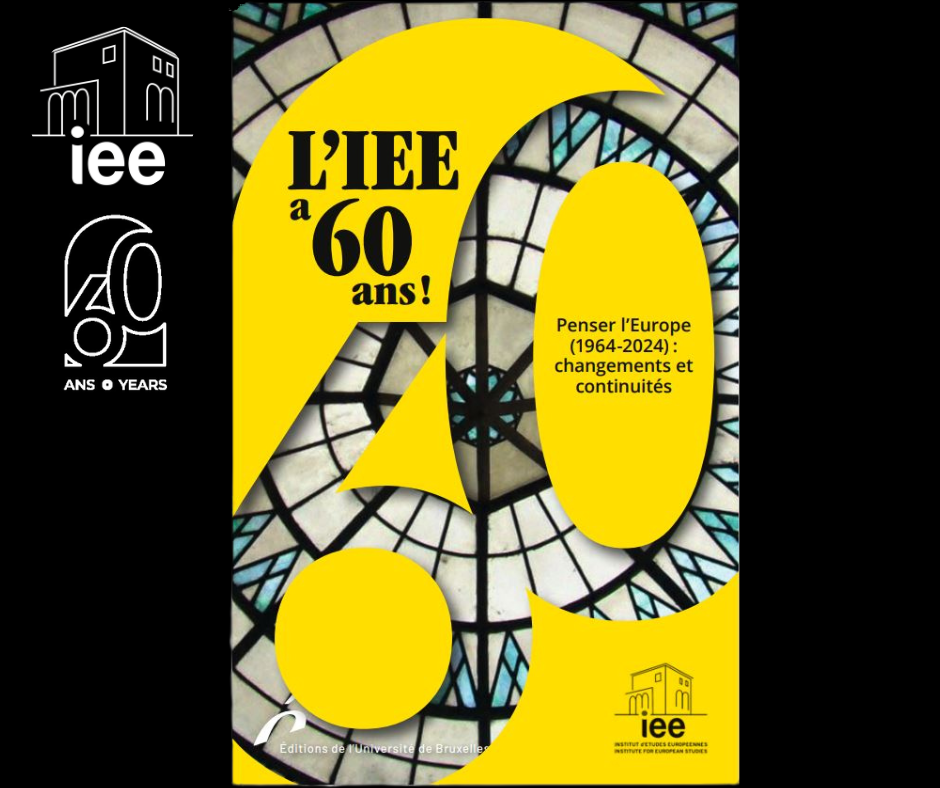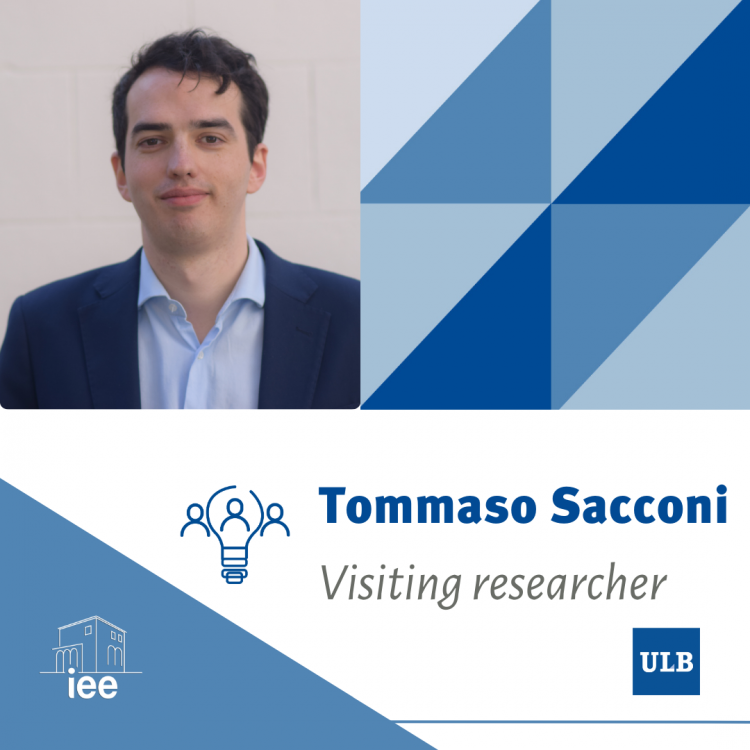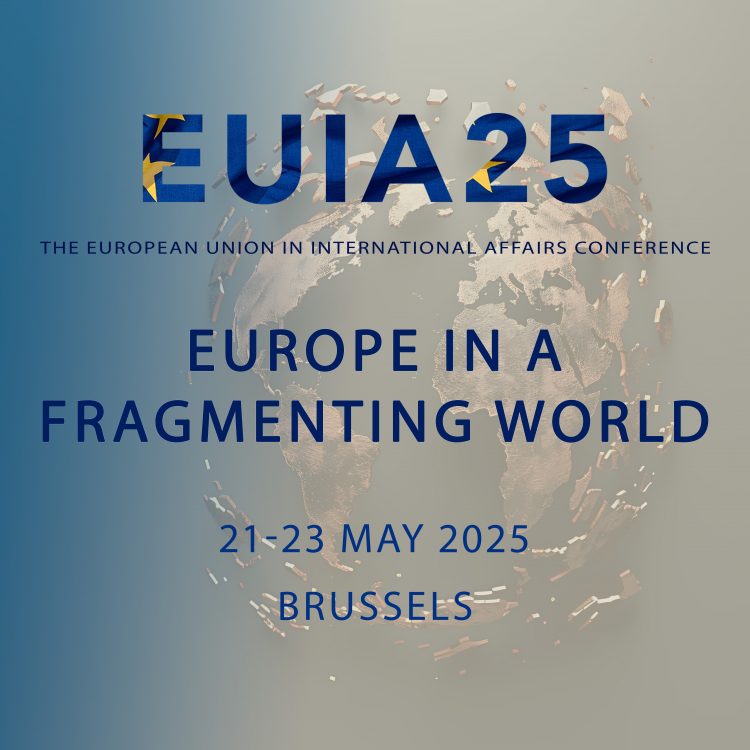Researchers and practitioners share their knowledge and vision on Europe in an open-access format
When it comes to defining the future of Europe, it helps to put things into perspective. IEE-ULB’s 60th anniversary is an opportunity to share thoughts on issues that are high on today’s European agenda, such as social Europe and relations between member states, European institutions and citizens.
The contributions to the anniversary conference on February 27, as well as all the cartes blanches of the series ’60 years in 6000 characters’, are now available in a bilingual ebook.
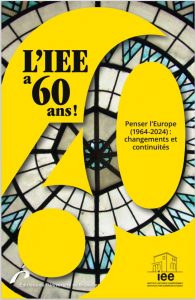 Discover “L’IEE a 60 ans: Penser l’Europe (1964-2024) : changements et continuités”
Discover “L’IEE a 60 ans: Penser l’Europe (1964-2024) : changements et continuités”
The anniversary conference of February 27
The conference held in February was intended less as a commemoration than as a celebration of the ideas that have animated our work since the creation of the Institut for European Studies. The question at the heart of the debates was: what it means to teach, debate, think about, and do research on European integration in the year 2024, compared with 1964, the year the IEE-ULB was founded?
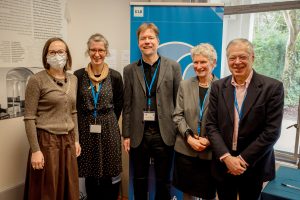
Firstly, the institutional evolution of the IEE within the ULB was discussed from the perspective of its former presidents, the deans of the partner faculties (Philosophy and Social Sciences, Law and Criminology, Solvay Brussels School of Economics and Management) and the University authorities. Interdisciplinarity was highlighted as an “intellectual miracle” to be reinvented by each generation. Interdisciplinarity is both an imperative for understanding Europe, and a fragility in the face of the hyperspecialization of research and short-term utilitarian and competitive logics.
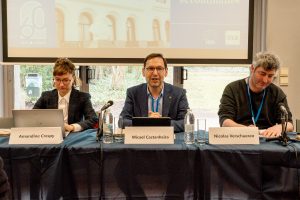
The focus then shifted to founding issues that have been with us since the early days of European integration and are still on the agenda today, either in the same or in new forms. Three of the Institute’s many research themes were explored: social Europe, the relationship between European institutions and member states, and citizens’ perceptions of Europe.
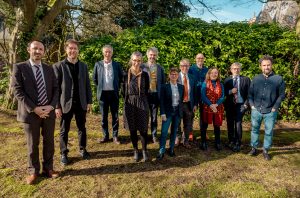
Finally, the discussion broadened to include the experience of other players in education, research and debate on Europe: universities (European University Institute, Florence), think tanks (CEPS), media (Europe MédiaLab), scientific funding institutions (European Research Council). The debate provided an opportunity to sketch out potential areas for future work at both EU and IEE level.
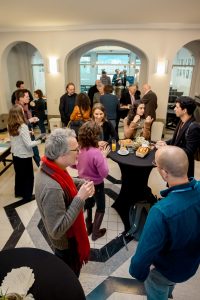 Putting sixty years of activity into perspective underlines the pioneering role of the IEE, which is more relevant than ever as ULB’s showcase in the European capital. Between academic tradition and pedagogical innovation, the libre examen that inspires our university invites us to go beyond any methodological nationalism, and to develop a constructive and critical relationship with Europe and the interests and values that underpin it. Thanks to the ever-growing diversity of its members (professors, researchers, administrative staff and students), the IEE is well equipped to understand the complexities of European governance by placing them in a long-term perspective. In short, it is ready to continue fulfilling its missions into the next sixty years. See you in 2084!
Putting sixty years of activity into perspective underlines the pioneering role of the IEE, which is more relevant than ever as ULB’s showcase in the European capital. Between academic tradition and pedagogical innovation, the libre examen that inspires our university invites us to go beyond any methodological nationalism, and to develop a constructive and critical relationship with Europe and the interests and values that underpin it. Thanks to the ever-growing diversity of its members (professors, researchers, administrative staff and students), the IEE is well equipped to understand the complexities of European governance by placing them in a long-term perspective. In short, it is ready to continue fulfilling its missions into the next sixty years. See you in 2084!
